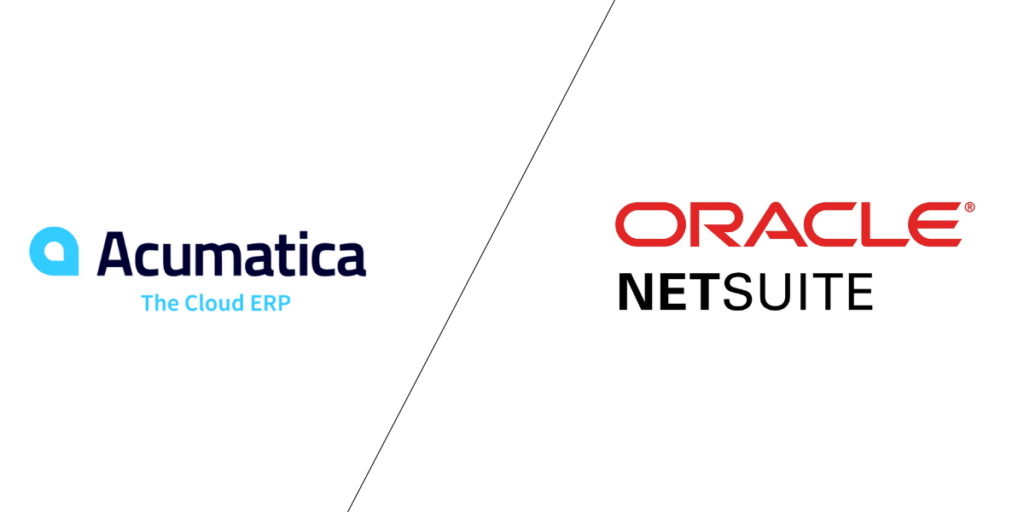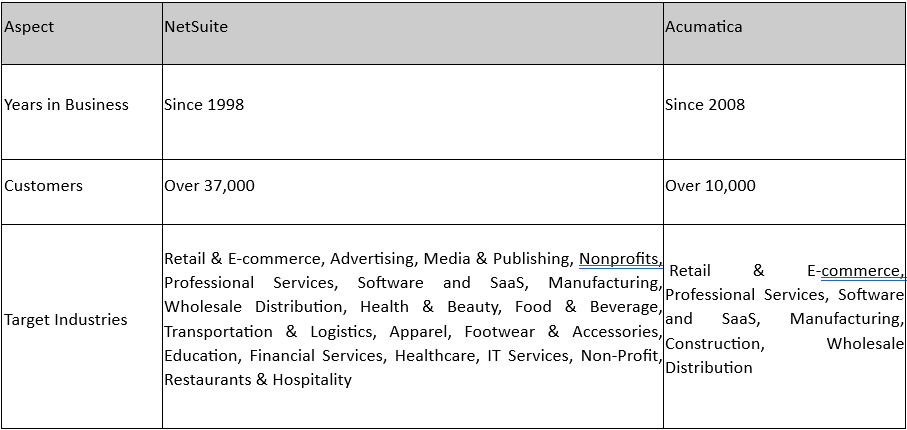ERP, or Enterprise Resource Planning, is a type of software that integrates various business processes into a single, unified system. This comprehensive solution enables companies to manage key operations—such as finance, human resources, sales, inventory, and supply chain—through one platform. By centralizing data and automating routine tasks, ERP systems help businesses streamline processes, improve decision-making, and boost overall efficiency company. In short, ERP is a powerful tool for managing the complex workflows and data of a growing organization, all while providing real-time insights and enhanced collaboration across departments.

Founded in 2008, Acumatica has quickly gained prominence in the ERP market. Offering both cloud-based and on-premises solutions, it caters to the varied demands of small to mid-sized businesses across different verticals. discover acumatica flexible pricing model and growth-oriented platform are key factors in its rising influence
Acumatica’s ERP solutions are known for their adaptability and user-friendly nature:
Acumatica is best suited for:
Acumatica’s focus on customization, project features, and mobility makes it a strong contender for businesses looking to evolve with technology.
The Journey of NetSuite
Since its inception in 1998 by Evan Goldberg, NetSuite has evolved from a simple online accounting tool into a comprehensive, award-winning cloud solution. NetSuite’s significance in the cloud industry was solidified when Oracle acquired it for $9.3 billion in 2016. This acquisition was not only a big win for NetSuite but also a testament to its robust capabilities and market relevance.
NetSuite’s Global Reach and Versatility
NetSuite serves over 37,000 customers worldwide, making it a leading cloud software provider. Its extensive range of features makes it an ideal choice for various business sizes and industries:
Ideal Users of NetSuite
NetSuite is versatile and suits a wide range of businesses, including:
NetSuite’s adaptability makes it a fit for industries such as wholesale distribution, manufacturing, retail, and services.

Functionality and Features
Both acumatica vs netsuite offer comprehensive ERP capabilities across various business processes. However, there are notable differences in their approach and depth of features.
When it comes to product maturity and history, both NetSuite and Acumatica have a solid track record. NetSuite was founded in 1998 and has grown to become one of the most mature and widely adopted cloud ERP solutions in the market. Acquired by Oracle in 2016, NetSuite benefits from Oracle’s extensive resources and global reach, further enhancing its capabilities and support.
Acumatica, established in 2008, is relatively newer but has quickly gained traction due to its innovative, flexible approach to ERP. Built on a modern, cloud-native architecture, Acumatica has earned a reputation for its user-friendly interface and adaptability. While it may not have the same long-standing history as NetSuite, its rapid growth and continuous innovation make it a strong contender in the ERP space.
Acumatica tends stands out as a robust and versatile ERP solution tailored for businesses seeking flexibility, scalability, and a user-friendly experience. Designed with small to mid-sized enterprises in mind, Acumatica works offers powerful customization options, ensuring it adapts to unique business needs. Its intuitive interface and excellent customer support make it a go-to choice for companies aiming to streamline their operations.
Moreover, Acumatica’s mobile-first approach ensures team members can access critical business functions anytime, anywhere. This fosters real-time collaboration, enhances workforce productivity, and drives better decision-making across the organization.
What are the key differences between Acumatica and NetSuite?
Acumatica offers superior flexibility and customization, while NetSuite excels in financial management and scalability.
Which industries do Acumatica and NetSuite cater to?
Acumatica serves industries like consumer products, eCommerce, manufacturing, and wholesale distribution. NetSuite caters to industries such as retail, professional services, and software companies.
Can I migrate my existing data to Acumatica or NetSuite?
Yes, both platforms offer data migration services. Consulting with implementation experts ensures a smooth transition.
How long does it take to implement Acumatica or NetSuite?
Implementation timelines vary based on business size, complexity, and customization. Projects can range from weeks to months.
What support and training options are available?
Acumatica provides user forums, online resources, and personalized training, while NetSuite offers phone/email support, user groups, and an online knowledge base.
Which ERP system is more cost-effective?
Cost-effectiveness depends on factors such as organizational size, complexity, and customization needs.
Do Acumatica and NetSuite support multi-currency and multi-language functionality?
Yes, both systems support these features, ideal for businesses with international operations.
Do Acumatica and NetSuite offer industry-specific features?
Both platforms provide industry-specific solutions through add-ons or specialized editions.
Can Acumatica and NetSuite handle complex pricing and discounts?
Yes, both platforms manage tiered pricing, volume discounts, and promotional strategies.
Are Acumatica and NetSuite compliant with regulatory requirements?
Both systems adhere to financial, tax, and data privacy regulations, ensuring compliance.
Choosing between NetSuite and Acumatica Consulting depends on your business needs and growth trajectory and tailored solutions. NetSuite offers extensive features, real-time processing, and robust international capabilities, making it ideal for larger, fast-growing companies with complex requirements. Acumatica, with its flexibility, project accounting, and mobility, is better suited for small to mid-sized businesses looking for a customizable and scalable ERP solution.
Selecting the right ERP system—whether it’s Acumatica or NetSuite—can profoundly influence your business’s efficiency and long-term success. Both platforms bring unique strengths to the table, catering to diverse industries and requirements.
When deciding, it’s essential to evaluate key factors such as core functionalities, user interface, customization capabilities, integration options, and overall user satisfaction. This ensures the ERP system aligns with your strategic goals and operational needs.
At Sprinterra, we specialize in crafting complex business solutions that empower companies to achieve operational excellence and competitive advantage. Our expertise in ERP implementation and optimization ensures businesses choose the right platform and unlock its full potential. Whether you prefer Acumatica, NetSuite, or another solution, our team will guide you through every step of the process, ensuring a seamless and successful implementation.
Get the latest insights on exponential technologies delivered straight to you
© 2025 Sprinterra. All rights reserved.